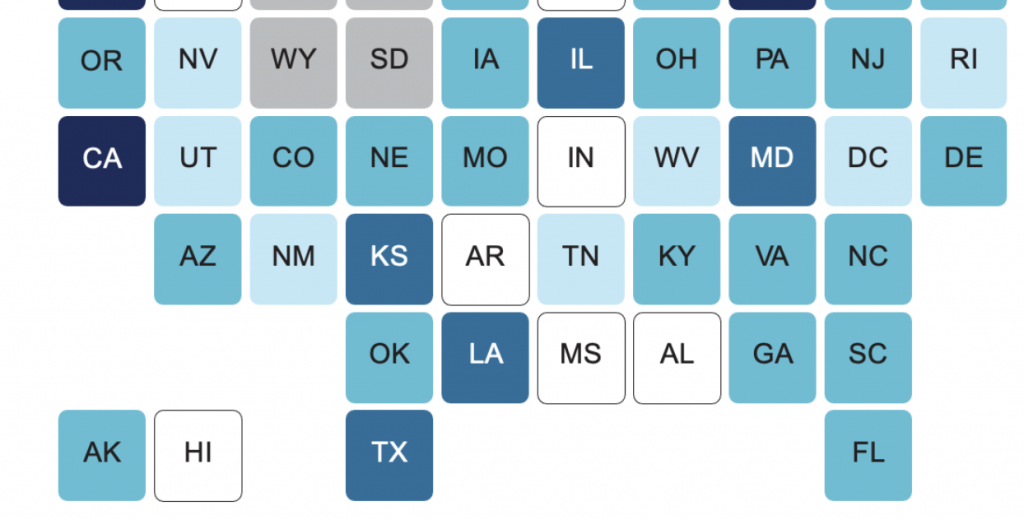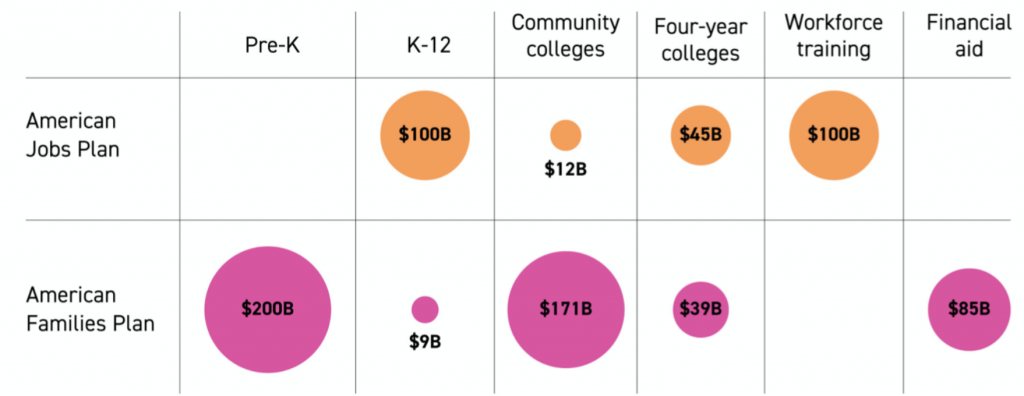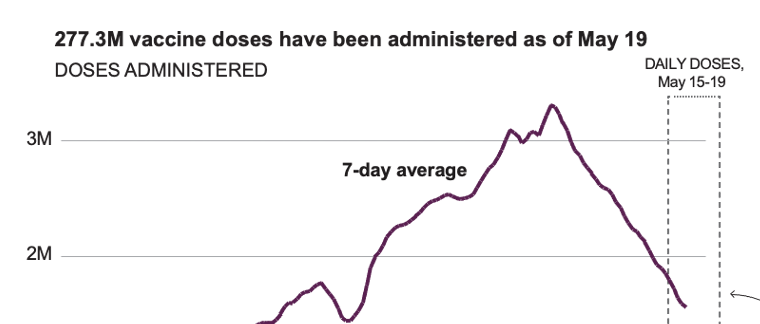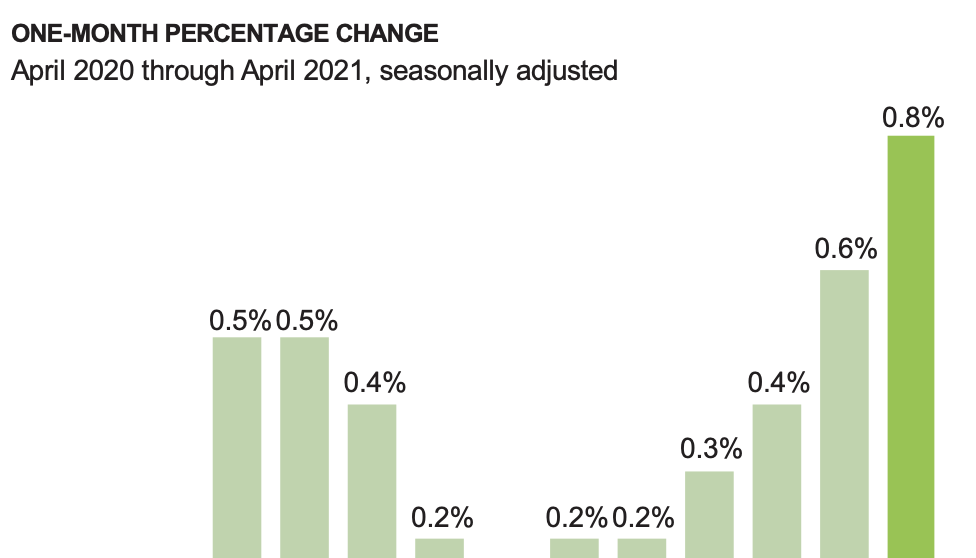More Info: Michael DiMaria | Partner and SW Regional Director | 602-717-3891 | [email protected]
Thanks for your interest in Washington, D.C., and thanks for reading This Week in Washington.
There is an exceptionally high level of distrust between Republicans and Democrats in this Congress. Patrick Robertson writes in Washington Whispers about how this distrust and the ghosts of past negotiations could impact the current attempt to develop bipartisan legislation. Congressman Erik Paulsen writes about the Biden Administration’s proposal to increase taxes on the wealthy, and how it would impact people who are not so wealthy. Al Jackson brings us up to date on the Biden Administration’s national security budget in his Defense Update.
Total Spectrum Spotlight is designed to bring you interviews with news makers and news shapers – and Congressman Drew Ferguson (R-GA) is both. A graduate of the University of Georgia with a degree in dental medicine, Congressman Ferguson founded a successful family dental practice and was Mayor of West Point, Georgia before being elected to Congress. He is a member of the House Ways and Means Committee and the Chief Deputy Whip for House Republicans. Erik Paulsen’s interview with Congressman Ferguson is both entertaining and informative.
Congress will recess at the end of next week for an extended Memorial Day holiday. Both the Senate and the House will return to Washington the week of June 7, and we will be back with our next issue of This Week in Washington on Wednesday, June 9.
Stay well.

Steve Gordon, Managing Partner
Washington Whispers
By Patrick Robertson, Total Spectrum Strategic Partner
Is Bipartisanship Possible?
Many people in and outside of Washington may be missing the big beltway story of this week, which is whether the two parties can agree on a bipartisan commission to examine the events of January 6th. This is not an issue that has a major economic impact, but how this story plays out will hold some clues to whether bipartisanship is possible in this Congress.
The 117th Congress and the Biden Administration have yet to cut a big, bipartisan deal. The American Rescue Plan was passed using reconciliation; the offers from the two parties were miles apart so Democrats decided to go it alone. There is optimism that infrastructure may be a chance to restart a bipartisan approach to legislating.
Potentially standing in the way of bipartisanship is the idea of a commission to examine the events of January 6th. The substantive debate about the commission is almost less important than the negotiating process that has occurred and the impact it will have on future legislative negotiations.
House Democrats floated a broad commission to investigate the events of January 6th that would have a Democratic majority and would allow the Chairman subpoena power. Republicans pushed back asking for an even split and bipartisan subpoena power. When it was clear Democrats could not move a commission any other way, they agreed to these changes and Republicans still didn’t say much.
Then Congressman John Katko (R-NY), Ranking Member of the House Homeland Security Committee, and Bennie Thompson (D-MS), Chairman of the same, began negotiating. The leaders of the Homeland Security Committee – rather than Speaker Nancy Pelosi and Republican Leader Kevin McCarthy – eventually cut a deal which they presented to their leadership.
Speaker Pelosi promised to quickly bring the deal to the House Floor for a vote. Leader McCarthy said nothing. It is worth noting that Ranking Member Katko is a moderate Republican who voted to impeach former President Trump in January.
The day before the vote on the House Floor, Leader McCarthy announced that he opposed the deal. Senate Republican Leader Mitch McConnell (R-KY) has also told Senate Republicans he does not support the deal.
My understanding is that some Republicans in both the Senate and the House support the compromise. However, Democrats think that the process bodes poorly for future deals because they do not know who speaks for the Republican party. Republicans counter that there was no deal to be made and that Democrats overstepped, and they are not sure that Democrats want bipartisan deals on anything.
There has been significant early progress on a bipartisan approach to infrastructure legislation. President Biden met last week with Republican leaders from the House and Senate, and everyone sounded an optimistic note about an eventual deal. Senate Republicans went back and said they would make another offer to the Biden Administration. House Republicans even started work on their own proposal.
Then the January 6 Commission deal collapsed.
It is very fair to say that passing an infrastructure bill has positives in it for both parties, certainly more than a commission. It is also true that a lot of bipartisan work has gone into the infrastructure talks already.
But Washington is full of ghosts. The ghost of former Speaker John Boehner trying to make deals with the Obama Administration only to find that the Tea Party was opposed so the deal that was worked out could not pass the House. The ghost of Republicans negotiating for a full year before deciding to oppose the Affordable Care Act, and the ghost of Democrats who felt used in that process who would have preferred to go it alone at the beginning. The ghost of the debt ceiling fights – especially timely since the debt ceiling suspension runs out on July 31, right at the peak of summer heat.
The collapse of a bipartisan January 6 Commission bill does not mean that bipartisan deals on the debt ceiling and infrastructure will collapse also, but it is another data point as we march toward potentially spending trillions of dollars on infrastructure.
Democrats will ask if Senator Shelley Moore Capito (R-WV) really speaks for all Republicans and whether she can cut a deal. Republicans will ask if Democrats will actually cut a deal or if they ultimately intend to go it alone regardless of how much bipartisan progress is made.
We will only know more in hindsight.
Maybe the wrong House Republican led the talks about the January 6 Commission. Maybe Congressman Katko never had buy-in from party leadership in either chamber. Maybe Democrats waited too long to compromise and should have had these discussions in January instead of approaching June. Maybe the more realistic approach should have been to use the standing committee structure to investigate what happened on January 6th instead of creating a new commission.
One option that seems to be on the table for infrastructure talks is that the parties agree on a bipartisan bill that passes with 60 votes for roads, bridges, airports, and broadband at a funding level of less than $1 trillion. Democrats could then come back and do the harder things like tax changes and raising revenue in a second Democrats-only reconciliation package that includes some of their spending priorities.
We can ignore for a moment the unique challenge of uniting Senators Bernie Sanders (I-VT), Elizabeth Warren (D-MA), Joe Manchin (D-WV), and Kyrsten Sinema (D-AZ) on a bill to raise taxes. But many people – including me – wonder why Democrats would allow Republicans to vote for infrastructure where there is some bipartisan agreement, and then take on the hard issues themselves.
This theory has been floating around Washington for weeks and it continues to be discussed. We will have to wait and see on this one as well.
Total Spectrum Spotlight: Georgia Congressman Drew Ferguson
Congressman Drew Ferguson (R-GA 3) discusses the continued recovery of the American economy and what – if any – additional spending is needed. He also speaks about the critical importance of broadband access to success in the 21st Century, and how his Connect America Now (CAN) Act works to bridge this digital divide and many other important issues facing Congress.
President Biden’s Proposed Tax Increases on the Wealthy Will Impact Many Who Are Not
By Congressman Erik Paulsen, Total Spectrum Strategic Consultant
During his Presidential campaign, candidate Joe Biden often promised to tax the wealthy and pledged that no one earning more than $400,000 would see his or her taxes increased. But members of President Biden’s Administration have recently clarified that the $400,000 threshold would apply to household income and not just individuals.
Candidate Biden also pledged to tax the wealthy on the increase in the value of their assets such as stock or real estate — the unrealized gain — regardless of whether they have sold these assets. So it is easy to see how President Biden’s proposed tax increases will hit – and hurt – a great many middle-income families.
An example: John and Mary Green have been married for 40 years and have decided to retire. They have owned and operated a popular flower shop during their marriage and this business has provided them an annual income of $400,000. They have now found someone who is offering to buy their business for $1.2 million. The sale price plus their usual annual income of $400,000 will bring John and Mary Green’s total annual income to $1.6 million.
President Biden wants a new top rate of 39.6% on households where the combined income is over $400,000. The Greens’ total proceeds from the sale of their business — $1.2 million — is above $400,000 and would be subject to the proposed new 39.6% rate for a tax of $475,000. The Biden Administration would also impose an additional 12.4% payroll tax against the $1.2 million for an additional tax of $148,800.
John and Mary’s decision to retire will require them to pay $520,000 in federal taxes on their additional income ($1.2 million) over $400,000, plus any additional state and local taxes that are applicable.
The Greens can hardly be called wealthy. They never had a combined annual income over $400,000. But selling their lifetime business would mean that the Greens will have to pay $160,471 more in taxes under the Biden Administration’s proposal than they would pay under current law.
But that is only the start. Thirty years ago, the Greens purchased shares of a new company called Apple for $5,000. Today their stock is worth over $500,000, which is earmarked for their retirement. The Greens also bought several works of art from a local artist years ago for $5,000. Based on an appraisal, the art is now worth $30,000. They also bought a few acres of land for $30,000, and the land is now appraised at $75,000. The Greens have not sold any of these assets, but each of these investments will be subject to Biden’s new tax on the unrealized gains on stocks, land, and other investments.
There have been suggestions from the Biden Administration that the new tax on unrealized capital gains would apply only to households with income over $1 million. However, the Greens would be considered wealthy for the year of the sale of their business and, therefore, subject to the capital gains tax on the total unrealized gains on their assets. The rate of the tax would be 39.6%. The combined gains on the Green’s assets — Apple stock, works of art, and land — would be $565,000. The tax on that unrealized gain will be $223,740. Compare that to current law which does not impose taxes until the assets are sold and then at a rate of 20%.
It is an open question whether the current net investment income tax of 3.8% would also be added to the tax on unrealized capital gains. It likely will fall on realized capital gains, making the total tax on capital gains income, whether realized or unrealized, 43.4%. The 3.8% surtax is supposed to be imposed only on the wealthy, but it would also hit the Greens.
Here is the bottom line. The Greens will become millionaires for one year when they sell their flower shop. The federal tax under the proposed Biden Administration proposal would be at least $520,000 in income taxes and $223,740 in capital gains taxes for a total tax bill of $743,740. The 3.8% surtax would add an additional $21,470 to that bill.
It’s easy to envision that the Greens may have to reconsider retirement and the sale of their flower shop if these new tax proposals become law. The 39.6% tax on the investments that they have not cashed in would dramatically reduce the resources which they have worked hard to set aside. The Greens – and families like them – must let Congress know that President Biden’s proposed tax increases on the wealthy will impact a broad range of people who are, in fact, not wealthy.
Defense Update
By Al Jackson, Total Spectrum Strategic Consultant
The administration’s long-awaited budget will likely be released on May 27, 2021. As announced in early April, the Fiscal Year (FY) 2022 budget request will be $753 billion in national security funding, including $715 billion for the Defense Department. As reported, further details were omitted during the release of the so-called “skinny budget,” a process common for new administrations who need extra time to build out their first budget request. The budget request is not expected to include reliable numbers for Future Years Defense Program projections. Industry experts are expecting even further cuts to defense spending in FY2023 and beyond.
While the DoD budget increase is modest, if not considered a cut due to inflation, the administration will likely request a nearly 16% increase in funding for civilian agencies. Under the pending proposal, nearly every reported agency would receive an increase, with several positioned for more than 20% growth over FY2021 including a potential 40.8% increase in Education, 28% for Commerce, 23% for Health & Human Services, 22% for the Environmental Protection Agency, and 20% for the National Science Foundation.
In order to achieve these increases in other departments, expect the budget request to feature attempts to divest existing weapons and aircraft systems, which invariably runs counter to the wishes of the Congress, as they represent various constituencies and military bases. Concern for unrest in the Middle East and the continual emerging threat of both China and Russia will likely lead to a Congressional reversal during the markup process, however, it remains to be seen if those advocating an annual 3-5% growth in defense spending will succeed. Progressive Democrats, led by Senate Budget Chairman Bernie Sanders (I-VT), are looking for ways to cut defense spending further by at least 10%.
House Committee on Armed Services Ranking Member Mike Rogers (R-AL) is advocating for a 3-5% increase, as has Senate Armed Services’s top Republican, Senator James Inhofe (R-OK). Congressman Rob Wittman (R-VA) called for the defense budget to be increased to $753 billion, which is $38 billion more than the likely Biden request and 3% above what was appropriated last year for FY 2021. The call for more defense spending by Republicans countered by equally vociferous advocacy for dramatic cuts by the progressive wing of the Democrat party poses a challenge for House Committee on Armed Services Chairman Adam Smith (D-WA), as he works to build consensus around the annual National Defense Authorization Act (NDAA). Senator Jack Reed (D-RI), Chairman of the Senate Committee on Armed Services, faces a similar challenge.
Chairman Smith has repeatedly expressed frustration over the long delay in the release of the administration’s FY 2022 budget, as it puts into jeopardy Congress’s ability to finish its work by October 1, 2021. Readers should expect a continuing resolution (CR) again to avoid a government shutdown, though the length of such a CR is yet to be determined. Industry experts fear it could go as long as a year, thereby further jeopardizing the readiness of the U.S. military. Additionally, Chairman Smith has expressed his growing concern regarding the increasing costs and problems associated with the F-35 Joint Strike Fighter, which may lead to significant modifications in the next NDAA legislation. The House Armed Services Committee is expected to markup its legislation in July following the Independence Day recess, with consideration by the full House of Representatives in the fall. The Senate is expected to mark up their version of the NDAA bill in late July.
As it relates to the F-35, more than 130 members of the House have signed a letter urging continued financial support for the F-35 Joint Strike Fighter program, signaling a potential roadblock for lawmakers, including Congressman Smith, hoping to cut F-35 procurement in FY 2022. The April 28 letter called on the leadership of the House Committee on Armed Services and the House Appropriations Subcommittee on Defense to fully fund the pending Defense Department’s budget request for F-35s during FY 2022, as well as any additional F-35s listed in the service’s unfunded requirements list. The letter, signed by 132 Members, was authored by the cochairs of the Joint Strike Fighter Caucus: Congressmen John Larson (D-CT), Marc Veasey (D-TX), Michael Turner (R-OH), and Chris Stewart (R-UT).
For FY 2021, Congress funded a total of 96 F-35s at a cost of $9.6 billion. That total, which comprised 60 F-35A conventional takeoff-and-landing variants, 10 F-35B short-takeoff-and-vertical-landing models, and 26 F-35C carrier variants, included 17 planes added by Congress as an increase over the Pentagon’s request.
In a related defense matter, Christine Wormuth, the administration’s nominee for Army Secretary, will likely be approved by the Congress soon as she sailed through the Senate Committee on Armed Services confirmation hearing. Of note, unlike most nominees, Ms. Wormuth expressed a strong commitment to advocate for adequate funding for the Army within the Pentagon, as this service may face the brunt of proposed cuts in the FY2022 budget.
Hearing Report
By Ramona Lessen, Executive Director, Total Spectrum
Senate Health, Education, Labor and Pensions Committee hearing on Paid Leave for Working Families: Examining Access, Options, and Impacts
Tuesday, May 18, 2021; 10:00 AM
To view a livestream of the hearing please click here.
Opening Statements:
Senator Patty Murray (D-WA), Chairman
Senator Richard Burr (R-NC), Ranking Member
Witnesses:
Vicki Shabo
Senior Fellow
Paid Leave Policy and Strategy, Better Life Lab at New America
Washington, D.C.
Marcia St. Hilaire-Finn
Founder/CEO of Bright Start Early Care and Preschool
Washington, D.C.
Marianne McManus
Vice President, Health & Benefits
IBM, on behalf of the American Benefits Council
Westchester, NY
Elizabeth Milito
Senior Executive Counsel
National Federation of Independent Business
Washington, D.C.
Senate Finance Committee Hearing on Funding and Financing Options to Bolster American Infrastructure
Tuesday, May 18, 2021; 10:00 am
To view a livestream of the hearing please click here.
Member Statements:
Senator Ron Wyden (D-OR), Chairman
Senator Mike Crapo (R-ID), Ranking Member
Witnesses:
Joseph Kile, Ph.D.
Director of Microeconomic Analysis
Congressional Budget Office
Washington, DC
Victoria F. Sheehan
President
American Association of State Highway and Transportation Officials
Washington, DC
Heather Buch
Subcommittee Chair, Transportation Steering Committee
National Association of Counties
Washington, DC
Shirley Bloomfield
Chief Executive Officer
NTCA – The Rural Broadband Association
Arlington, VA
Consumer prices increased in April at fastest pace since 2008
House lawmakers’ infrastructure earmark requests hit $14.9B

What you need to know about Biden’s school infrastructure plan

Vaccine tracker: 60.2% of U.S. adults have received
first dose

Congressional Calendar
All times in ET
Monday, May 17
- 3 p.m. House Rules Committee virtual business meeting on H.R. 1629 (117), the Fairness in Orphan Drug Exclusivity Act, and H. Res. 275 (117), which addresses the March 16 shootings in Atlanta.
Tuesday, May 18
- 9:30 a.m. House Rules Committee virtual business meeting on H.R. 3237 (117), which would provide emergency security funding in response to the Jan. 6 attack, and H.R. 3233 (117), which would establish a national commission to investigate the attack.
- 9:30 a.m. Senate Armed Services Committee hearing on the nomination of Gen. Paul LaCamera to lead the United Nations Command.
- 10 a.m. House Agriculture Committee member day hearing.
- 10 a.m. House Appropriations Agriculture-FDA Subcommittee member day hearing.
- 10 a.m. Senate Commerce Security Subcommittee hearing on protecting kids online.
- 10 a.m. House Appropriations Military Construction-VA Subcommittee hearing on quality-of-life updates in the Air Force.
- 10 a.m. House Foreign Affairs Committee hearing on the U.S.-Afghanistan relationship after military withdrawal.
- 10 a.m. House Oversight Committee hearing on drug prices.
- 10 a.m. Senate Banking Committee virtual hearing on the National Flood Insurance Program.
- 10 a.m. Senate Finance Committee virtual hearing on funding infrastructure.
- 10 a.m. Senate HELP Committee hearing on paid leave for working families.
- 10 a.m. Senate Homeland Security and Governmental Affairs Committee hearing on DHS’s Office of Intelligence and Analysis.
- 10 a.m. House Financial Services Committee Subcommittee on National Security, International Development and Monetary Policy hearing – The Lending Practices of the People’s Republic of China and Impact on the International Debt Architecture.
- 10 a.m. Senate Commerce Subcommittee on Tourism, Trade and Export Promotion hearing: Reviving International Travel and Tourism to Create and Restore Jobs.
- 10 a.m. Senate Appropriations Subcommittee hearing on the National Guard and Reserve.
- 10:30 a.m. House Appropriations Financial Services Subcommittee hearing on broadband access.
- 10:30 a.m. House Judiciary Committee markup of five bills, including H.R. 2922 (117), the Elder Abuse Protection Act of 2021.
- 10:30 a.m. House Energy and Commerce Subcommittee on Consumer Protection and Commerce hearing – The Potential of Automobile Technologies.
- 12:30 p.m. House Appropriations Labor-HHS-Education Subcommittee member day hearing.
- 2:30 p.m. Senate Intelligence Committee hearing on the nominations of Christopher Fonzone to be general counsel for the Office of the Director of National Intelligence and Brett Holmgren to be assistant secretary of State for intelligence and research.
- 2:30 p.m. Senate Armed Services Subcommittee on Cyber hearing: Cybersecurity of the Defense Industrial Base.
- 4 p.m. House Homeland Security Committee virtual markup of seven bills, including the Pipeline Security Act and a number of cybersecurity proposals.
Wednesday, May 19
- 9:45 a.m. Senate Foreign Relations Committee business meeting to consider nominations for under secretary of State.
- 9:30 a.m. House Judiciary Subcommittee on the Constitution, Civil Rights and Civil Liberties hearing – Continuing Injustice: The Centennial of the Tulsa-Greenwood Race Massacre.
- 10 a.m. House Foreign Affairs Committee markup of eight bills, including H.R. 2329 (117), the Countering Chinese Communist Party Malign Influence Act, and two measures to repeal Authorization for the Use of Military Force resolutions.
- 10 a.m. House Appropriations Committee hearing – CIA FY 2022 Posture.
- TBD Senate Foreign Relations Committee hybrid hearing to consider pending nominations, immediately following the panel’s business meeting.
- 10 a.m. House Appropriations Homeland Security Subcommittee hearing on Customs and Border Patrol resource management and operational priorities.
- 10 a.m. House Appropriations Labor-HHS-Education Subcommittee public witness day hearing.
- 10 a.m. House Appropriations State-Foreign Operations Subcommittee hearing on global climate finance.
- 10 a.m. House Financial Services virtual hearing on oversight of prudential regulators.
- 10 a.m. Senate Appropriations Labor-HHS-Education Subcommittee hearing on the CDC budget for fiscal 2022. CDC Director Rochelle Walensky testifies.
- 10 a.m. Senate Appropriations Transportation-HUD Subcommittee hearing on disaster recovery.
- 10 a.m. Senate Environment and Public Works Committee hearing on biodiversity losses and solutions.
- 10 a.m. Senate Finance Committee virtual hearing on lessons learned about health care following the Covid-19 pandemic.
- 10:30 a.m. House Energy and Commerce Energy Subcommittee virtual hearing on the fiscal 2022 budget for the Department of Energy.
- 1 p.m. House Natural Resources Subcommittee on Oversight and Investigations hearing: Misuse of Taxpayer Dollars and corporate Welfare in the Oil and Gas Industry.
- 2 p.m. House Appropriations Commerce-Justice-Science Subcommittee hearing on NASA’s fiscal 2022 budget. NASA Administrator Bill Nelson testifies.
- 2 p.m. Senate Appropriations Financial Services Subcommittee hearing on the IRS and narrowing tax gaps. IRS Commissioner Chuck Rettig testifies.
- 2:30 p.m. Senate Homeland Security Committee hearing on medical supply chains and the pandemic response.
- 2:30 p.m. Senate Small Business Committee hearing on women and minorities in contracting.
- 2:30 p.m. Sensate Judiciary Subcommittee on Competition Policy, Antitrust and Consumer Rights hearing: Hospital Consolidation Concerns and Solutions.
- 3 p.m. House Administration Committee virtual hearing on changes to the U.S. Capitol Police Department.
- 3 p.m. Senate Appropriations Military Construction-VA Subcommittee hearing on military infrastructure and climate resilience.
- 3 p.m. Senate Veterans Affairs Committee hearing on pending nominations.
- 4:30 p.m. Senate Armed Services Committee hearing: DOE Atomic Defense Activities and Programs.
Thursday, May 20
- 9 a.m. House Oversight National Security Subcommittee hearing on next steps for U.S. engagement in Afghanistan.
- 9:30 a.m. Senate Aging Committee virtual hearing on Alzheimer’s and caregivers.
- 9:30 a.m. Senate Agriculture Committee hearing on opportunities for addressing climate change.
- 9:30 a.m. House Appropriations Committee hearing – Worldwide Threat and FY 2022 National Intelligence Program/Military Intelligence Program.
- 10:00 a.m. Senate HELP Subcommittee on Primary Health and Retirement Security hearing – Solving the Crisis in the Health Care Workforce.
- 10 a.m. House Appropriations Subcommittee on Military Construction hearing Member Day.
- 10 a.m. House Appropriations Subcommittee on Homeland Security hearing Member Day.
- 10 a.m. Senate Judiciary Committee business meeting to consider pending Circuit Court and District Court nominations.
- 10 a.m. Senate Armed Services Committee hearing on the U.S. withdrawal from Afghanistan.
- 10 a.m. Senate Banking Committee virtual hearing on infrastructure investments.
- 10 a.m. Senate Energy and Natural Resources Committee hearing on forest management.
- Noon. House Natural Resources Indigenous Peoples Subcommittee virtual hearing on three proposals, including draft legislation for the RESPECT Act, which would improve communication and coordination between federal agencies and Native American tribes.
This e-newsletter is produced by Total Spectrum/Steve Gordon and Associates and the Arizona Chamber of Commerce and Industry. The views expressed herein may include subjective commentary and analysis that are the views of the editors and authors alone. Information in this e-newsletter is obtained from sources believed to be reliable, but that cannot be guaranteed as independently investigated or verified. Information in this e-newsletter is not an endorsement, advertisement, recommendation, or any type of advice; political, legal, financial or otherwise. For questions about the content of this e-newsletter, please contact the Arizona Chamber of Commerce and Industry.


















Add comment